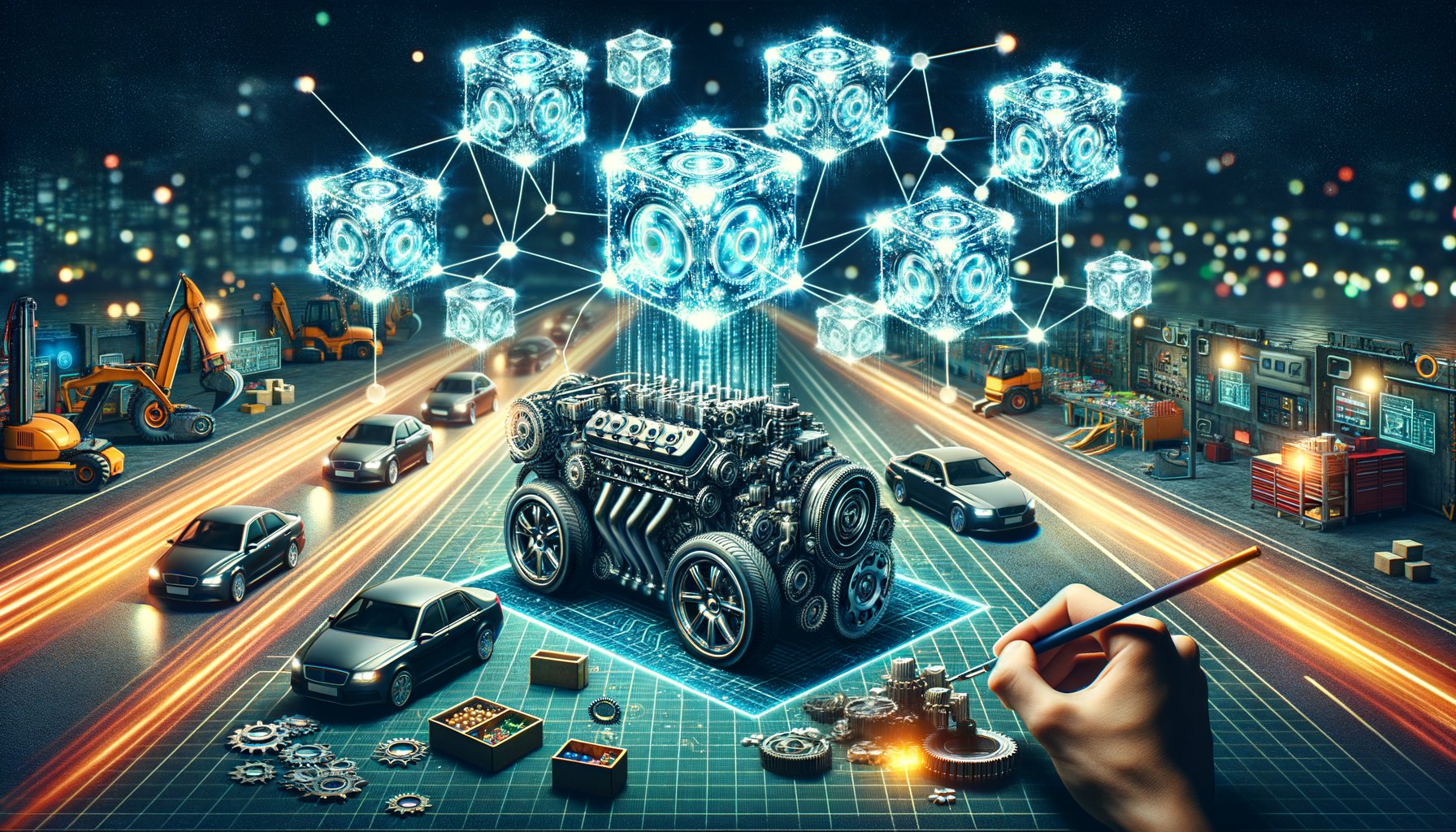Physical Address
304 North Cardinal St.
Dorchester Center, MA 02124
Physical Address
304 North Cardinal St.
Dorchester Center, MA 02124

The automotive industry is no stranger to technological revolutions. From the advent of assembly lines to the integration of advanced computer systems in vehicles, technology has always been a driving force behind the evolution of this sector. Now, another technological innovation is poised to disrupt the automotive world – blockchain.
Blockchain, at its core, is a decentralised and distributed digital ledger that records transactions across multiple computers so that any involved record cannot be altered retroactively, without altering all subsequent blocks. This technology ensures transparency and security, making it attractive for a variety of applications beyond its original use for cryptocurrency like Bitcoin.
In an industry as multifaceted as automotive, blockchain has potential applications that could redefine everything from supply chain management to vehicle safety and connectivity. Let’s delve into some key areas where blockchain can make a significant impact.
The complex nature of automotive supply chains often leads to inefficiencies and lack of transparency. With parts sourced from various suppliers worldwide, tracking their journey can be incredibly challenging. Here’s where blockchain can help.
By using blockchain technology, each part can be tracked from production through delivery to the end consumer. This not only simplifies tracking but also helps prevent counterfeit parts from entering the supply chain. For example, if a part is recorded in the blockchain at production and then again upon arrival at a factory or dealership, any discrepancies would immediately become apparent.
Blockchain could revolutionise vehicle maintenance logs by creating immutable records of all repairs and routine maintenance. By storing this information on a secure and unalterable digital ledger, vehicle owners, mechanics, and used car buyers could have access to a reliable history of a car’s maintenance.
Additionally, blockchain could enhance vehicle safety. For instance, if an issue is identified with a specific batch of parts, the blockchain could be used to quickly identify all vehicles that received those parts. This would enable more efficient recalls and repairs.
As we venture further into the era of autonomous vehicles, blockchain technology could play a critical role in ensuring the security and integrity of these systems. Autonomous vehicles rely heavily on data for navigation and decision-making processes. Blockchain can ensure this data is accurate and hasn’t been tampered with, providing an additional layer of security.
The potential applications for blockchain in the automotive industry are vast and varied. However, like any disruptive technology, it will take time for its full potential to be realised.
Key players in the automotive industry are already exploring ways to integrate blockchain into their operations. From startups working on blockchain-based vehicle history platforms to major manufacturers investing in blockchain research and development projects – there’s no doubt that we are at the cusp of significant change.
While it’s exciting to ponder the possibilities, it’s important to remember that implementing such a transformative technology comes with challenges. Issues such as scalability, interoperability with existing systems, regulatory concerns and public acceptance must be addressed before we see widespread adoption of blockchain in this sector.
In spite of these challenges though, one thing is clear: Blockchain has immense potential to drive transparency, efficiency and security in the automotive industry – reshaping it for the betterment of manufacturers as well as consumers.